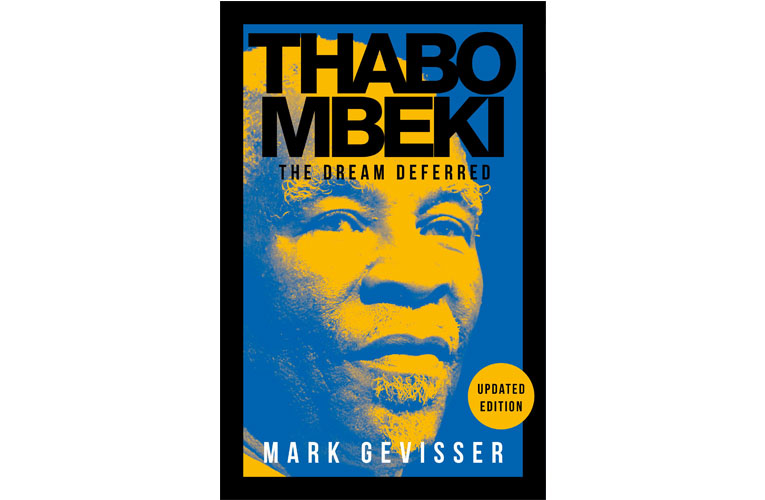Dream deferred, the life and times of Thabo Mbeki revisited by journalist and author Mark Gevisser
By Edward Tsumele, CITYLIFE/ARTS Editor
Journalist and author Mark Gevisser has released his updated version of his critically acclaimed book, Thabo Mbeki; Dream Deferred, a biography of former President Thabo Mbeki. In these two added new chapters, the book asks difficult questions about the complexity surrounding Mbeki’s presidency, which was cut short when he was removed from the seat of power unceremoniously when the ANC conference in Polokwane voted Jacob Zuma as its new President. Mbeki who was President of the country and was constitutionally mandated to finish his second term, was however removed from power by his ANC colleagues, at the time with its National Executive Committee packed with Zuma sympathisers.
However after the removal of Mbeki from power, he led a relatively quiet political life, preferring to spend his time building his legacy out of politics through his Thabo Mbeki Foundation. He also was active in academic engagement for example through the Thabo Mbeki Institute at UNISA.
However after the removal of Zuma from power in 2018 to pave the way for President Cyril Ramaphosa, ironically in the same way that his predecessor was unceremoniously removed, Mbeki’s interest in the ANC was renewed. In fact he become busy as part of the leaders of within the ANC trying to rebuild the image of the party, and possibly ensure its future as a governing party after it was battered by the State capture debacle and other incidents of corruption for years.
Therefore Gevisser’s updated book comes out in the context of these developments within the ANC, with some critics even predicting that this liberation party’s traditional victory since 1994 of 50% or more at the forthcoming election in 2024 is not guaranteed in light of several allegations and cases of corruption against some of its leadership and those it deployed in the public sector as well as the continuing factional politics within the party.
The updated version also comes at a time when the squabbles within the ruling party are so divisive that its membership on one hand votes into positions of power, even Comrades that are facing serious charges ranging from murder to corruption, while on the other some of them leaders, especially those4 supporting the renewal efforts are discouraging such culture.
So this book could not have come at a better time. But what do the added chapter say?
Was the ANC ‘captured’ by corrupt outsiders who ejected Thabo Mbeki from power and destroyed his legacy? Or is Mbeki himself an author of the misfortune that befell South Africa following his dismissal: not just by facilitating Zuma’s rise to power, but by presiding over an earlier era of patronage and putting into place a particular set of policies and practices that set the scene for what would follow?”
In 2022, Thabo Mbeki turns 80. With an incisive new introduction and epilogue, Gevisser brings this prize-winning biography fully up to date. He sees Mbeki’s spectacular fall from office as a consequence of the “disconnect” that has characterized his entire life. But he also charts the “redemptive fifth act” of Mbeki’s public life, starting with the moment he was cheered at Nelson Mandela’s funeral at the same time that Jacob Zuma was booed, in 2013. Always a polarizing figure, Mbeki remains championed by many South Africans nostalgic about his leadership: Gevisser examines why.
“What happens to a dream deferred?” Mbeki often asks, paraphrasing one of his favourite poems by Langston Hughes. After his 2008 ousting, his own dreams seemed to have been shattered. In telling the story of one of South Africa’s most compelling, perplexing, and powerful figures—and the extraordinary family from which he comes—Gevisser has given us one of the finest narratives ever written about South Africa’s conflict-ridden past, its transition to democracy, and its current difficulties.
This book has been hailed by influential readers internationally since it was first published.
“Probably the finest piece of non-fiction to come out of South Africa since the end of apartheid,” writes Martin Plaut, Times Literary Supplement
“essential reading for anyone intrigued by South Africa’s complex philosopher-king.” Says The Economist.










